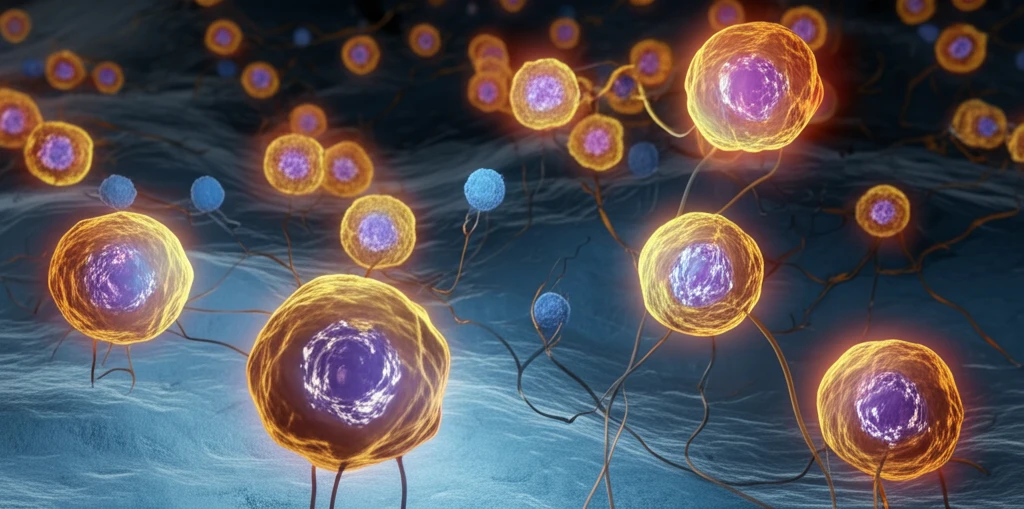
Unlocking Immunity: How Complement Proteins and Neutrophils Team Up Against Meningitis
"New research sheds light on the critical partnership between complement system activation and neutrophil function in combating Neisseria meningitidis infections."
Meningitis, an inflammation of the membranes surrounding the brain and spinal cord, remains a significant global health threat. Bacterial meningitis, often caused by Neisseria meningitidis, can lead to severe complications, including brain damage, hearing loss, and even death. Understanding how our immune system combats this infection is crucial for developing effective treatments and preventive strategies.
The human body has two primary defense mechanisms, one of which is the innate immune system. This system is the first responder, offering immediate protection against invading pathogens. The innate immune system relies on various components, including complement proteins and neutrophils, to recognize and neutralize threats.
Recent research has highlighted the intricate interplay between these two key players, with scientists discovering that neutrophils, a type of white blood cell, rely heavily on complement system activation to mount a full and effective response against N. meningitidis. This collaboration unlocks potent antimicrobial mechanisms, offering new insights into fighting this deadly infection.
The Complement System and Neutrophils: A Dynamic Duo Against Meningitis

The study, conducted by researchers at the Institute for Hygiene and Microbiology, University of Würzburg, Germany, delves into the differential influences of complement on neutrophil responses to N. meningitidis. The researchers sought to understand how these two components of the innate immune system interact to protect against invasive meningococcal disease (IMD).
- Neutrophils are capable of non-opsonic uptake and killing of different N. meningitidis strains.
- In the presence of immune serum with active complement, N. meningitidis association with neutrophils is strongly increased.
- Blocking complement activation at the C3 level significantly reduces bacterial uptake by neutrophils.
- Complement activation is essential for neutrophils to mount a full oxidative burst response against N. meningitidis.
Implications and Future Directions
This research underscores the importance of complement activation in enabling neutrophils to effectively combat N. meningitidis infections. These findings have implications for understanding IMD in individuals with complement deficiencies and those undergoing complement therapy. Further research is needed to explore how vaccination and early stages of complement activation can optimize cellular responses against N. meningitidis, leading to improved prevention and treatment strategies for this life-threatening disease.
